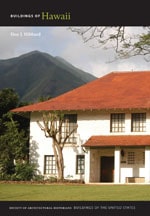This large, plain, gable-roofed stone structure differs from most other Hawaiian churches of its era by having no belfry. It originally housed the congregation of the Reverend Jonathan Green. In 1842, Green, an ardent abolitionist, resigned his pastorate with the American Board of Commissioners for Foreign Missions when that organization continued to accept donations from churches in slaveholding states. Refusing to be supported by revenues generated by slave labor, he split from the mission and, at the invitation of the aliʻi Kiha, organized this independent church at Makawao. In addition to his religious preaching, Reverend Green taught agriculture and introduced wheat to upcountry Maui.
Several years after the church was organized, the congregation constructed the sanctuary. The stone was gathered from the fields of Makawao and Paia, and the coral used for the lime mortar came from the ocean off Paia. In 1902 this independent church merged with the Hawaiian Evangelical Association. During World War II, the building was used as a school, but after the war it reverted to its original function. It was rehabilitated in 1960–1961.















